Cholesterol levels aren’t just a medical concern—they’re a lifestyle choice. While medications are often the go-to for managing high cholesterol, what you put on your plate can play an even bigger role. It’s time to skip the pills and go for the natural route. Here are 15 food swaps that will lower your cholesterol, not to mention elevate your diet.
1. Avocado For Butter
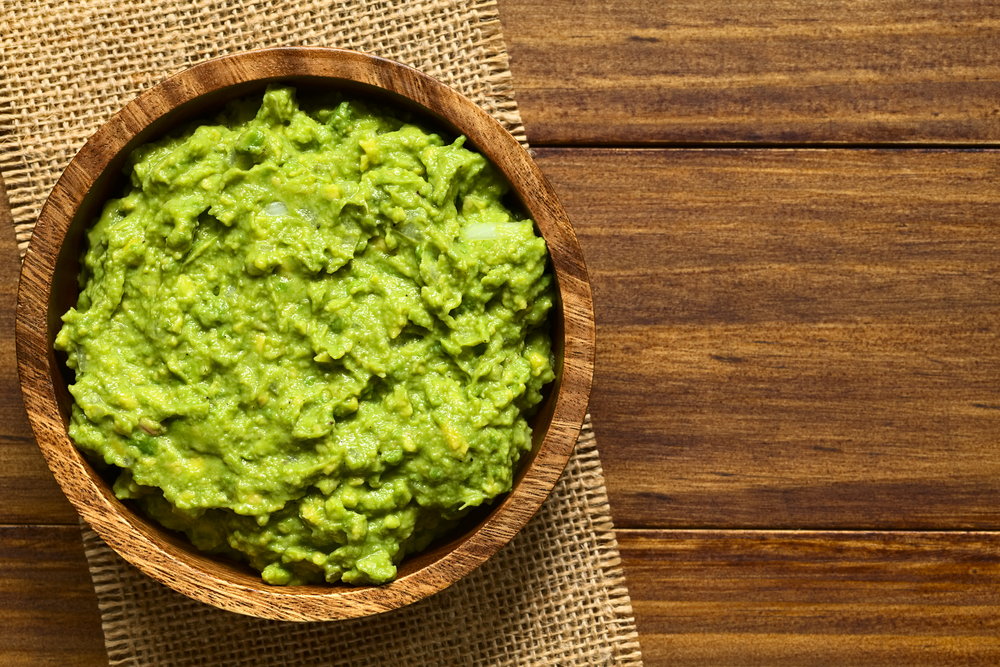
If you’re still spreading butter on your toast, it’s time to rethink. Swapping that buttery indulgence for the creamy, heart-healthy goodness of avocado can make a big difference. Avocados are packed with monounsaturated fats, which help raise your good cholesterol while lowering the bad, making them a smart alternative to saturated fats found in butter. Nutritionists at BBC Good Food note that avocados support heart health, help manage cholesterol, and provide a wealth of nutrients.
Add a sprinkle of chili flakes or a squeeze of lemon for an extra flavor. This simple switch not only keeps your cholesterol levels in check but also boosts your nutrient intake. Avocados are celebrated not just for heart health but also for their benefits to skin and overall wellness, making them a delicious and nutritious choice.
2. Oats For Sugary Cereal
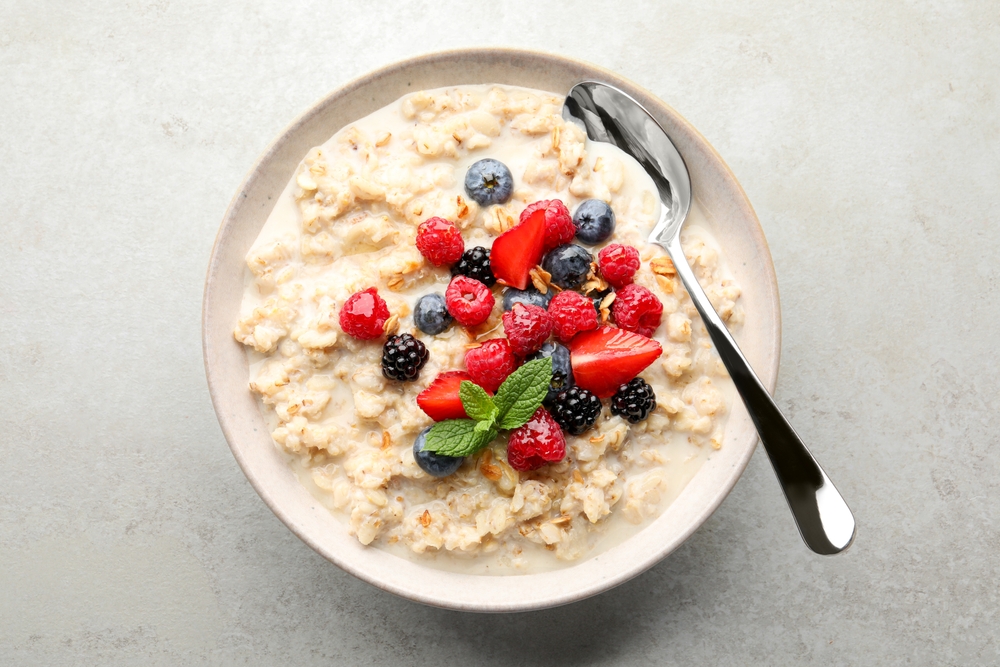
Let’s face it—sugary cereals are a thing of the past, especially if you’re concerned about heart health. Replace that bowl of sugary crunch with a hearty serving of oats. Oats contain beta-glucan, a soluble fiber that actively helps lower LDL (bad) cholesterol. It’s a slow, steady approach to lowering cholesterol, without sacrificing the satisfaction of a morning meal.
You can dress up your oats with a variety of toppings—think fresh berries, chia seeds, or a dash of cinnamon. Not only will this keep your cholesterol in check, but it’ll leave you feeling fuller longer. That’s the beauty of oats: they’re versatile and low-key, but incredibly effective. Simple, wholesome, and nutritious—a true superfood.
3. Almonds For Chips
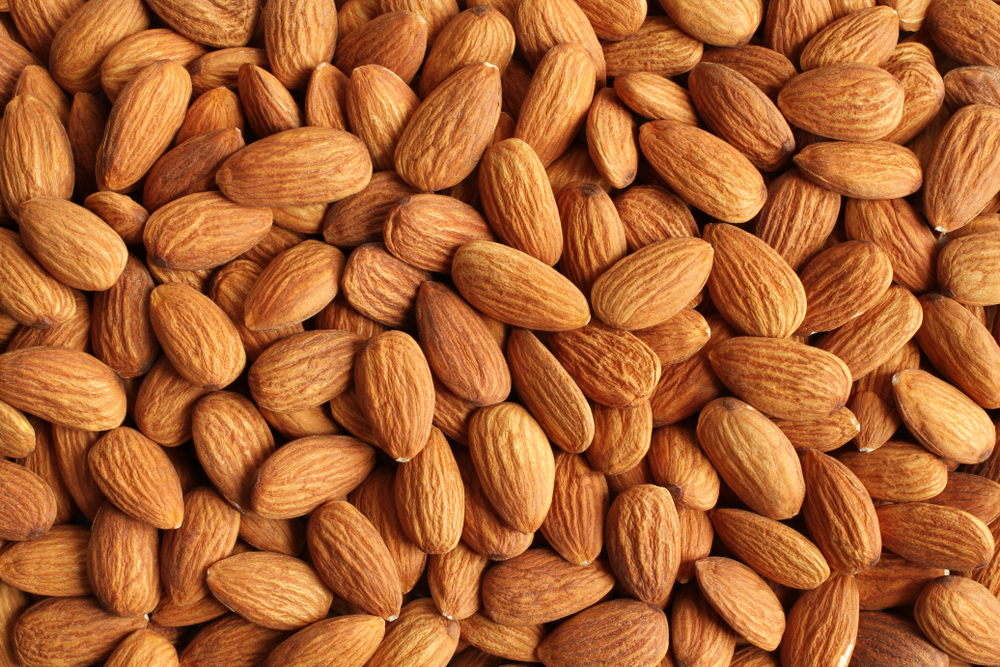
Snack time doesn’t have to be a cholesterol nightmare. Ditch those oily, fried chips for a handful of almonds. Almonds are rich in unsaturated fats and fiber, both of which help lower LDL cholesterol, making them a heart-healthy alternative. Studies show that almonds have a consistent LDL-cholesterol lowering effect in healthy individuals and those with high cholesterol or diabetes, thanks to their unique nutrient composition that supports cholesterol regulation.
The beauty of almonds is their convenience—they’re easy to take on the go and require no preparation. Keeping a small bag with you can help ward off unhealthy cravings throughout the day. Beyond their cholesterol benefits, almonds also help stabilize blood sugar levels, making them a smart choice for sustained energy and better overall health
4. Sweet Potatoes For White Potatoes

White potatoes might be a comfort food staple, but they’re not doing your cholesterol any favors. Instead, swap them for their vibrant, orange cousins: sweet potatoes. Rich in fiber and antioxidants, sweet potatoes help maintain healthy blood sugar levels, which in turn can improve your cholesterol profile. Plus, their high potassium content helps balance the negative effects of sodium.
Try roasting or mashing them for a savory side dish, or even a satisfying breakfast option. Sweet potatoes are versatile and make a heart-healthy alternative that’s just as filling. Plus, they’re naturally sweet, so you won’t even miss the carbs you used to love. Your body will be grateful for the nutrient boost.
5. Olive Oil For Vegetable Oil
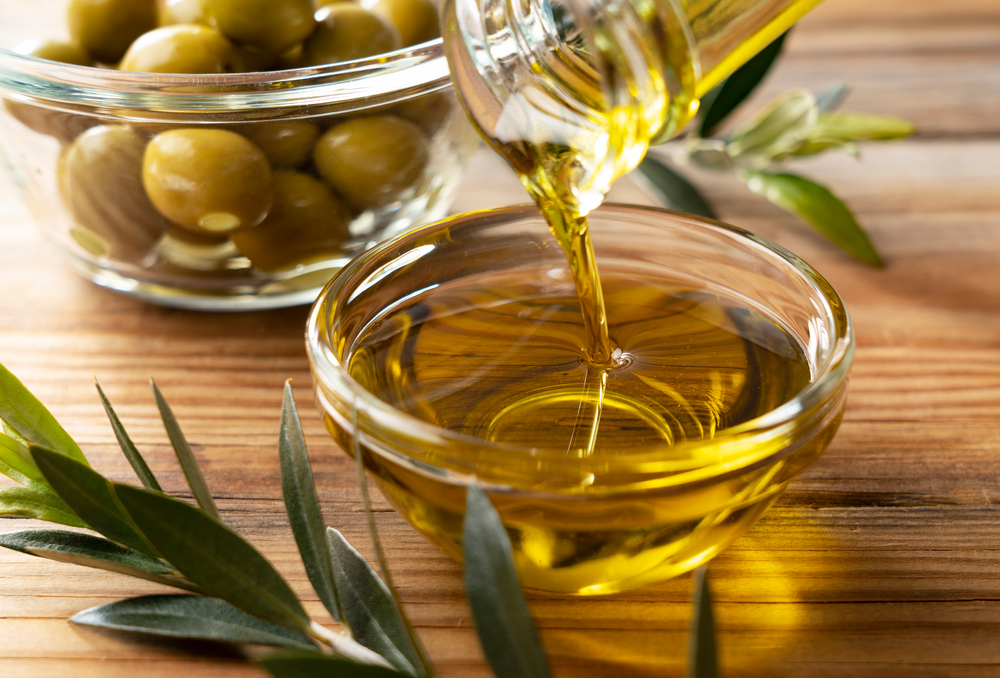
Regarding cooking oils, olive oil stands out for its health benefits. Its high content of monounsaturated fats has been shown to lower cholesterol and support heart health. Swapping vegetable oil for olive oil in your stir-fries or salad dressings not only adds a rich, slightly fruity flavor but also delivers a nutritional boost.
Unlike many vegetable oils that may contain unhealthy trans fats, olive oil is packed with natural anti-inflammatory compounds and antioxidants. These properties can help lower triglycerides and reduce the risk of cardiovascular disease. As highlighted in a comprehensive review of recent studies, regular olive oil consumption is associated with increased longevity and a lower risk of chronic diseases, thanks to its cardio-protective and anti-inflammatory effects. This simple swap is a chic and effective way to elevate both the flavor and health profile of your daily meals.
6. Legumes For Meat
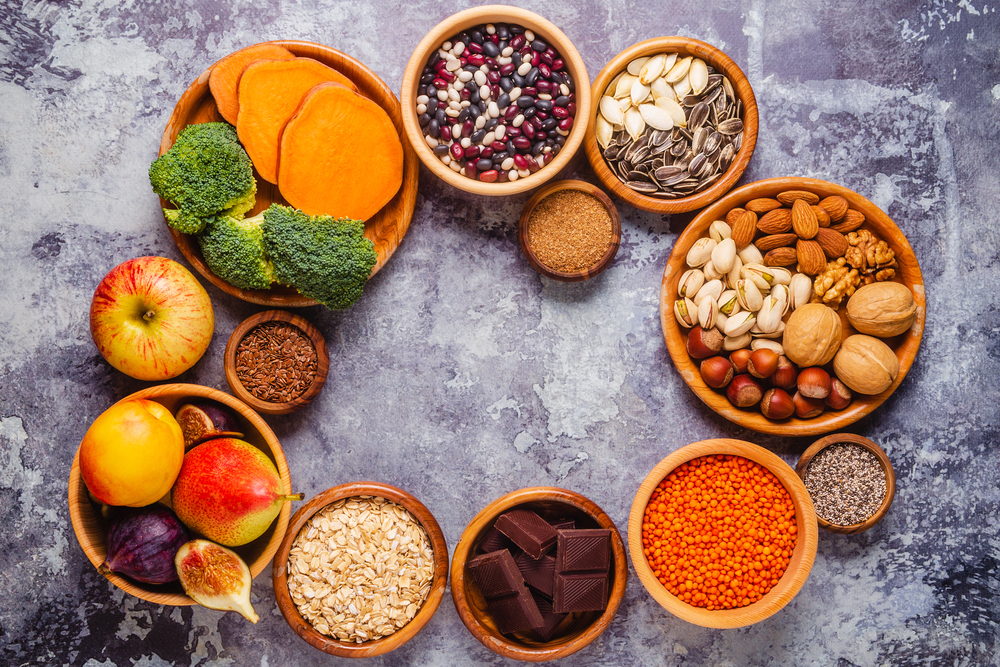
If you’re looking to boost your fiber intake and lower your cholesterol, legumes are the unsung heroes you need. Whether it’s beans, lentils, or chickpeas, they are a fantastic meat substitute. Legumes are packed with fiber, protein, and essential nutrients that help keep your cholesterol in check while filling you up without the saturated fat found in animal products.
Try them in soups, stews, or salads as a meat alternative, or even mash them into veggie burgers. The more you add legumes to your meals, the more benefits you’ll see. They’re rich in plant-based compounds that improve your lipid profile and reduce inflammation in the body. For heart health, they’re a game-changer.
7. Flaxseeds For Crackers
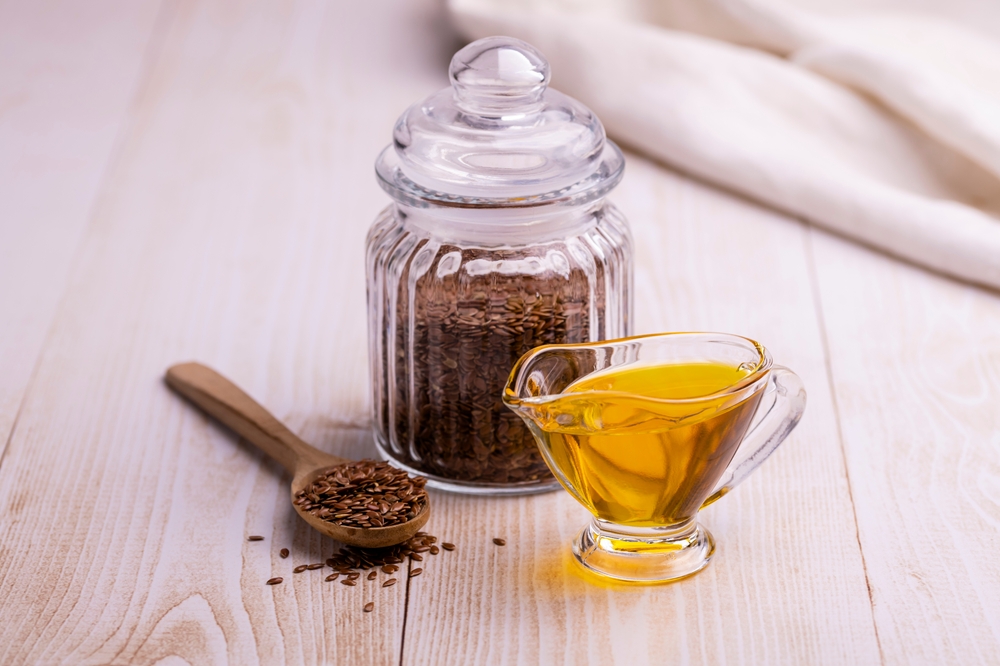
If you’re craving a crunchy snack but still want to keep your cholesterol in check, try flaxseeds. Rich in omega-3 fatty acids, flaxseeds help lower cholesterol while providing fiber and antioxidants. Swapping your usual crackers for flaxseed crackers, or simply sprinkling ground flaxseeds over salads or smoothies, is an easy way to boost your nutrition and support heart health. Research shows that flaxseeds are particularly effective at reducing LDL (“bad”) cholesterol, thanks to their high content of alpha-linolenic acid (ALA) and soluble fiber, which binds to cholesterol in the digestive tract and helps remove it from the body.
Beyond cholesterol management, flaxseeds are excellent for digestion. Their fiber content acts as a natural laxative and supports a healthy gut, which can further benefit cholesterol metabolism. Small but mighty, flaxseeds are a smart, nutritious addition to any diet, helping you say goodbye to empty calories and hello to a snack that’s both satisfying and heart-healthy.
8. Plant-Based Milk For Dairy Milk
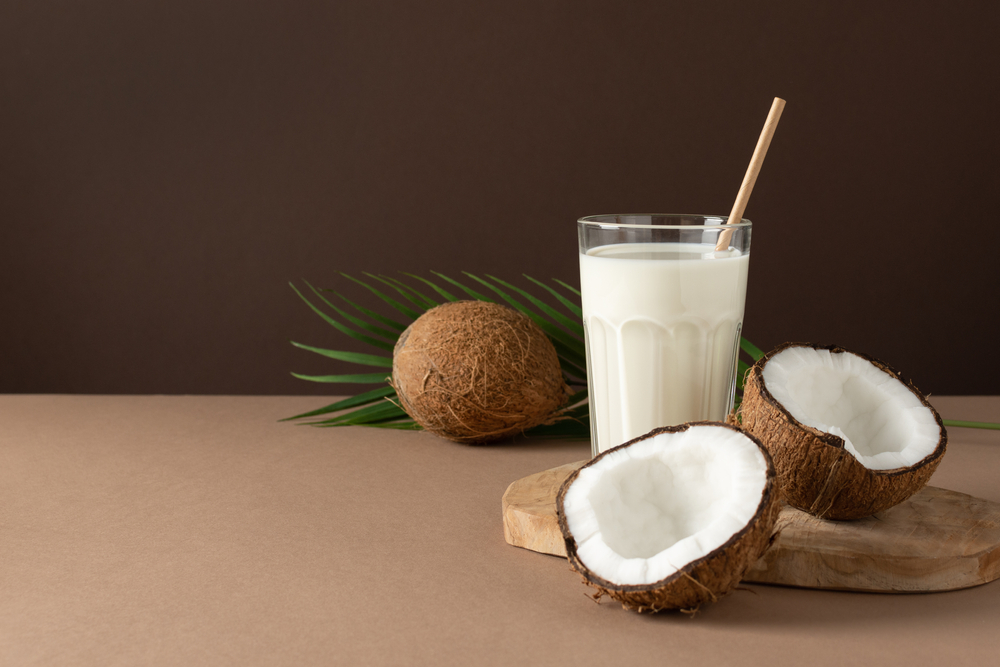
Dairy milk can be high in saturated fats, which contribute to raising your LDL cholesterol levels. Instead, try swapping it for plant-based alternatives like almond, oat, or soy milk. These milk alternatives are low in saturated fat and often fortified with vitamins like calcium and vitamin D, making them a heart-healthy option.
The added benefit? Many plant-based milks are free from the hormones and antibiotics found in conventional dairy. Whether you’re using it in your coffee, smoothies, or baking, this swap will benefit your heart and leave you feeling lighter. It’s an easy change that’s more in tune with your body’s natural needs.
9. Apples For Processed Fruit Snacks
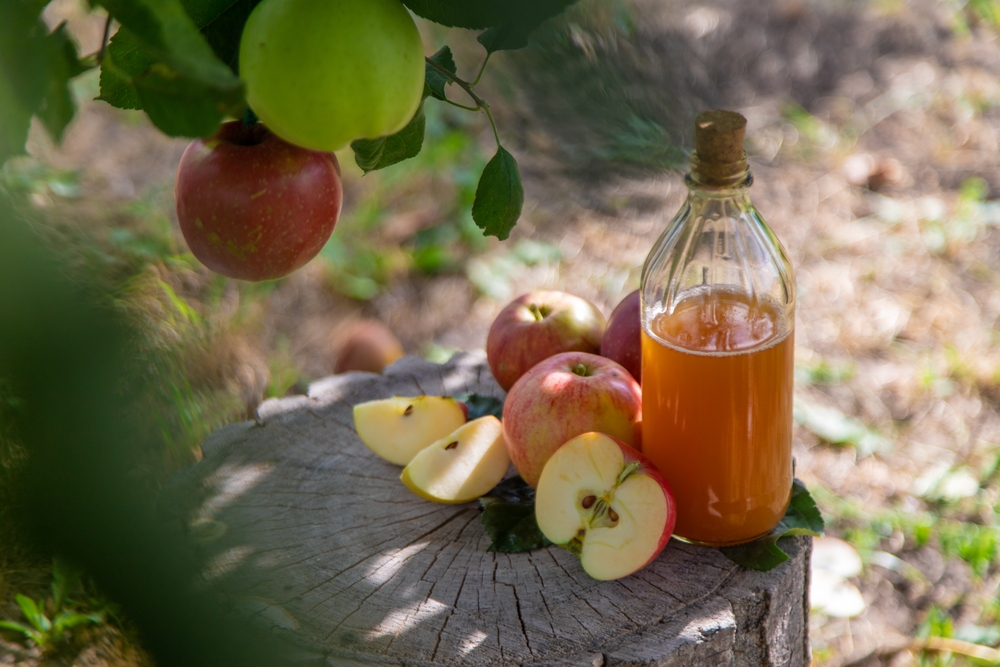
Processed fruit snacks might seem like a healthy choice, but they’re often packed with sugar and preservatives that can spike cholesterol. Instead, reach for an apple—a natural, nutrient-packed option that’s high in fiber and antioxidants. Apples are rich in pectin, a type of soluble fiber that actively helps lower cholesterol levels.
An apple a day doesn’t just keep the doctor away—it keeps your cholesterol in check, too. The crunch of an apple satisfies that snack craving while helping you stay full and focused. It’s a fresh, natural alternative to processed fruit products that’s as satisfying as it is good for you. The benefits are immediate and long-lasting.
10. Salmon For Fried Fish
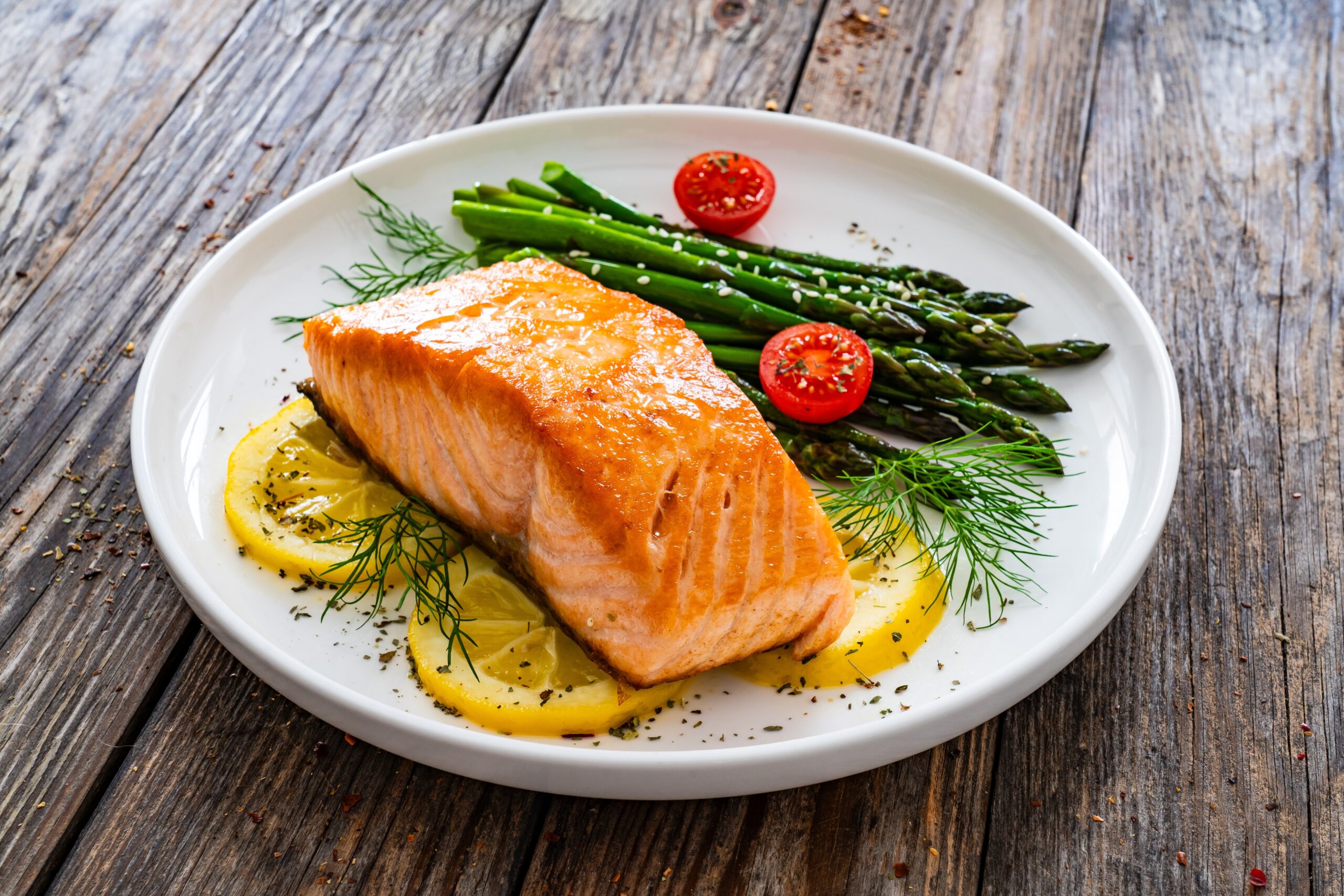
If fried fish is your go-to meal, it’s time to make a switch. Salmon, a fatty fish rich in omega-3s, helps lower both cholesterol and inflammation in the body. Swap your fried fish for a beautifully seared piece of salmon, and you’ll not only cut out the unhealthy fats but also improve your heart health.
Salmon is also an excellent source of vitamin D, which supports overall wellness. It’s a perfect protein-packed choice for lunch or dinner, offering a savory, fulfilling option that won’t weigh you down. Rich, flavorful, and nourishing, this switch supports both your waistline and cholesterol levels.
11. Chia Seeds For Granola Bars
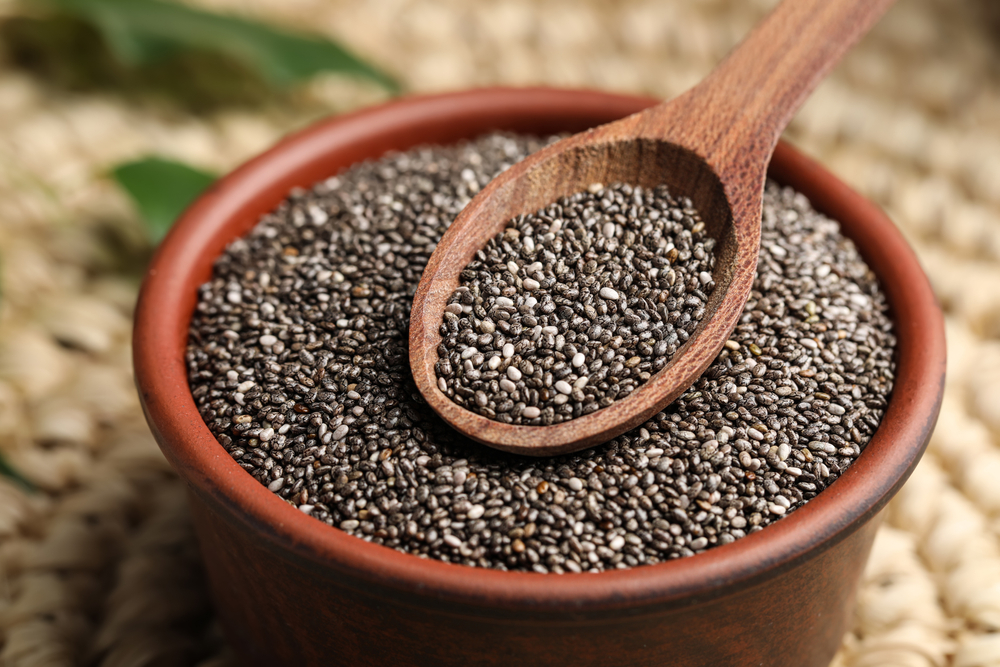
Granola bars may seem like a healthy snack, but they often contain sugar and refined grains. A better alternative? Chia seeds. These tiny powerhouses are rich in omega-3 fatty acids and fiber, both of which help lower cholesterol and support cardiovascular health. Simply sprinkle them on your yogurt or add them to a smoothie.
Chia seeds also absorb liquid, expanding in your stomach to keep you feeling fuller for longer. They’re an easy and efficient way to lower your cholesterol while enjoying a satisfying snack. By replacing processed snacks with chia, you’re setting yourself up for better health.
12. Quinoa For White Rice
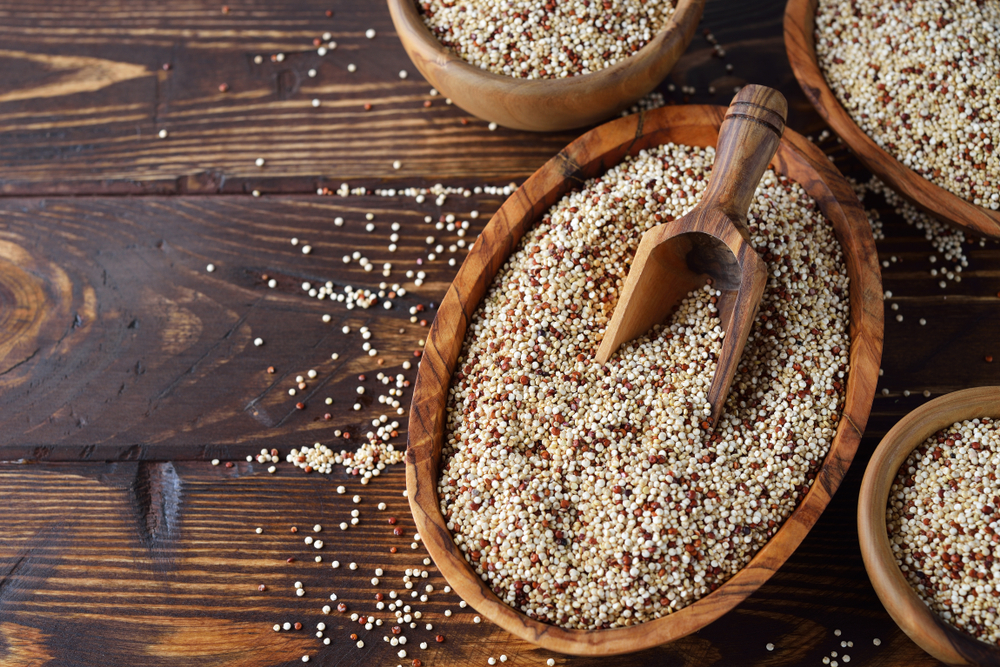
White rice might be a staple in many diets, but it’s not doing your cholesterol any favors. Instead, reach for quinoa, a nutrient-dense grain that’s high in fiber and protein. Quinoa’s fiber helps to lower cholesterol and improve blood sugar levels, making it a superior choice for heart health.
With its rich texture and nutty flavor, quinoa can easily replace white rice in your meals. It’s a versatile side dish or base for salads, offering a healthier, more filling alternative. The high-quality protein in quinoa also helps with muscle repair and growth, making it a top choice for overall wellness.
13. Tomatoes For Ketchup
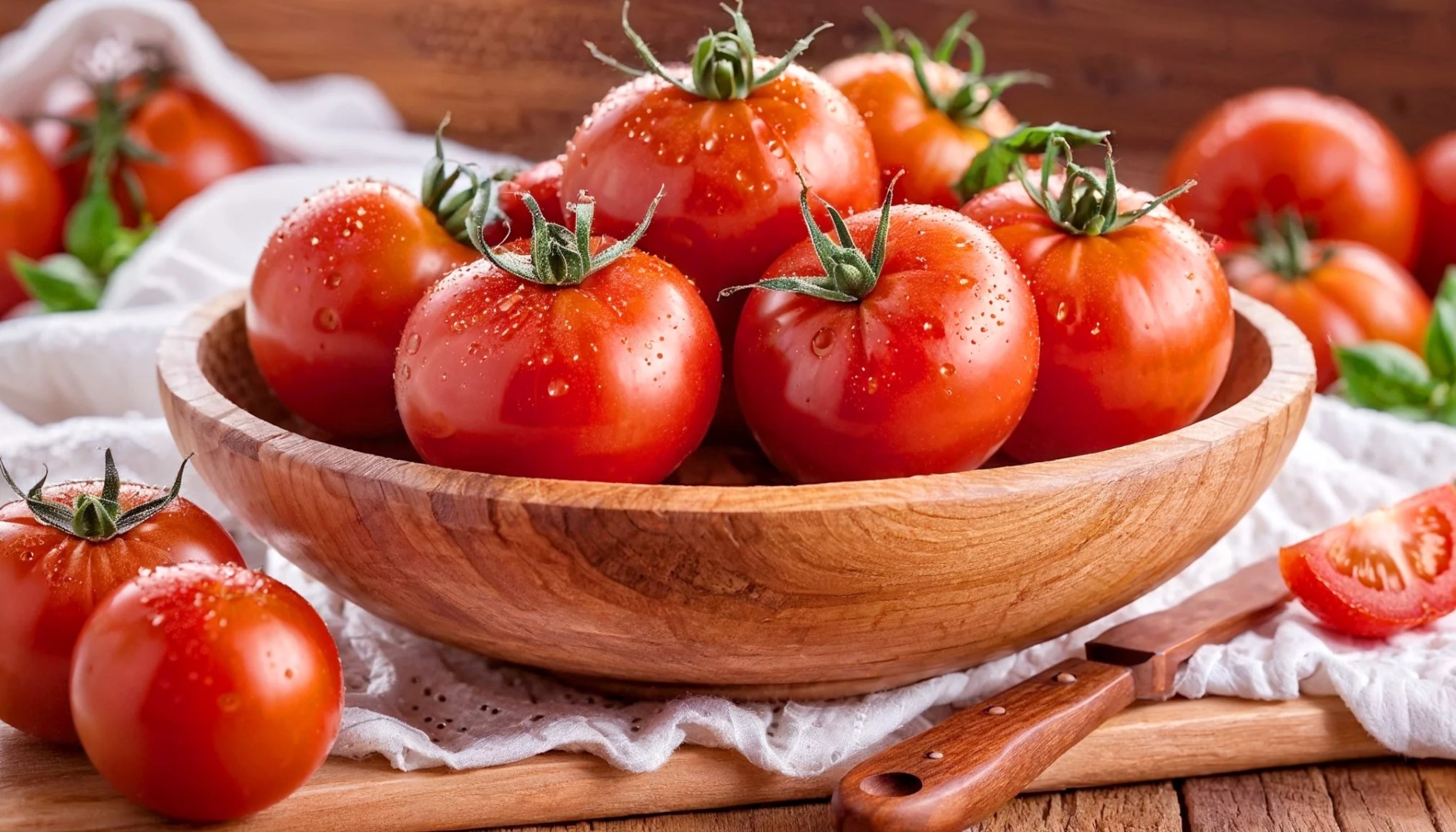
Tomatoes aren’t just for salads—they can replace the unhealthy condiments in your fridge, too. Swap ketchup for fresh or roasted tomatoes to add flavor without the added sugar and preservatives. Tomatoes are rich in lycopene, an antioxidant that has been shown to reduce cholesterol and protect the heart.
Fresh tomato salsa or a homemade tomato sauce can be a healthy, low-calorie alternative to processed ketchup. It’s a simple yet effective swap that’s as good for your heart as it is for your taste buds. Plus, tomatoes add a burst of freshness to any dish, making your meals even more enjoyable.
14. Spinach For Iceberg Lettuce
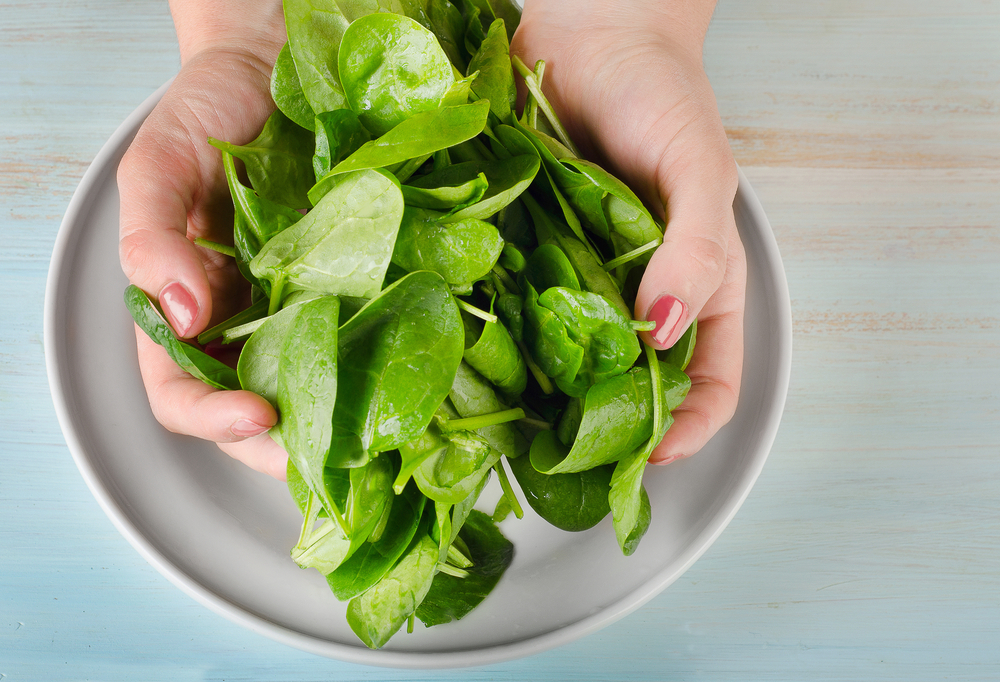
Iceberg lettuce may look fresh, but it lacks the nutrients that are essential for heart health. Swap it for spinach, which is loaded with vitamins, minerals, and antioxidants that support cardiovascular health. Spinach is high in fiber, potassium, and nitrates—substances that help lower blood pressure and improve cholesterol levels.
Spinach also offers more than just heart benefits; it’s packed with iron, which promotes healthy circulation and overall vitality. Whether you’re tossing it in a salad or adding it to your smoothie, this leafy green is a superior choice. It’s time to give iceberg lettuce the boot and welcome spinach into your meals.
15. Dark Chocolate For Milk Chocolate

Craving something sweet? Opt for dark chocolate instead of milk chocolate. Dark chocolate is rich in flavonoids, compounds that help lower blood pressure and improve cholesterol levels. Plus, the lower sugar content in dark chocolate makes it a healthier choice for both your heart and your waistline.
A small piece of dark chocolate can satisfy your cravings without the unhealthy fats and sugars found in milk chocolate. It’s a perfect way to indulge in a treat that’s both delicious and heart-healthy. So, next time you need a chocolate fix, make it dark for a little guilt-free pleasure.

Abisola is a communication specialist with a background in language studies and project management. She believes in the power of words to effectively connect with her audience and address their needs. With her strong foundation in both language and project management, she crafts messages that are not only clear and engaging but also aligned with strategic goals. Whether through content creation, storytelling, or communication planning, Abisola uses her expertise to ensure that her messages resonate and deliver lasting value to her audience.


